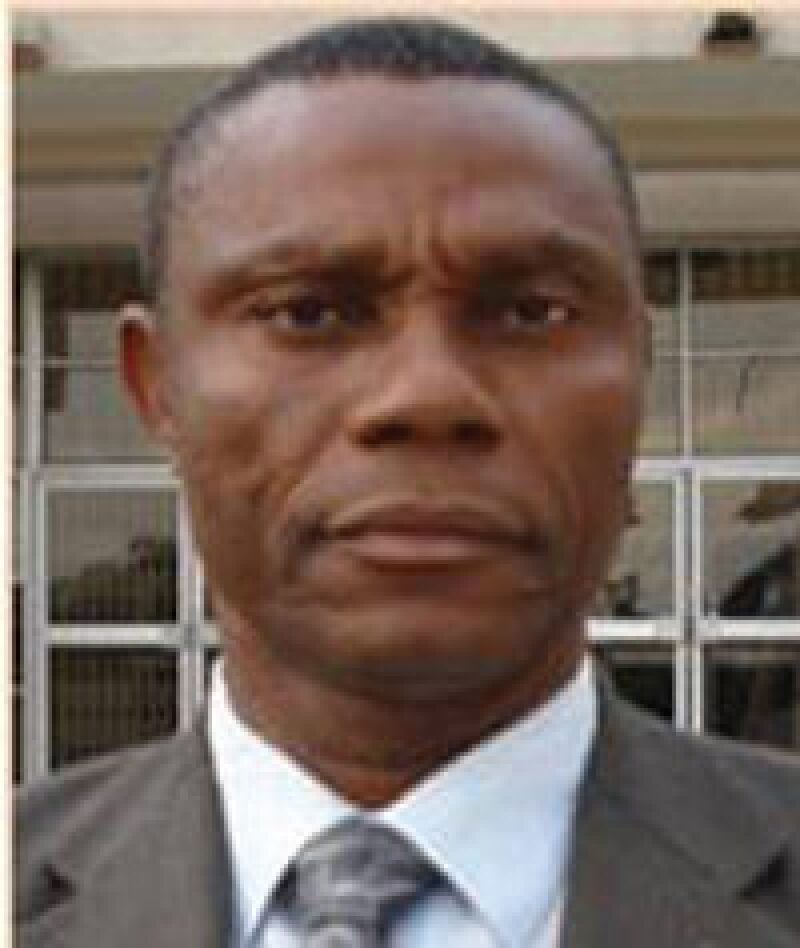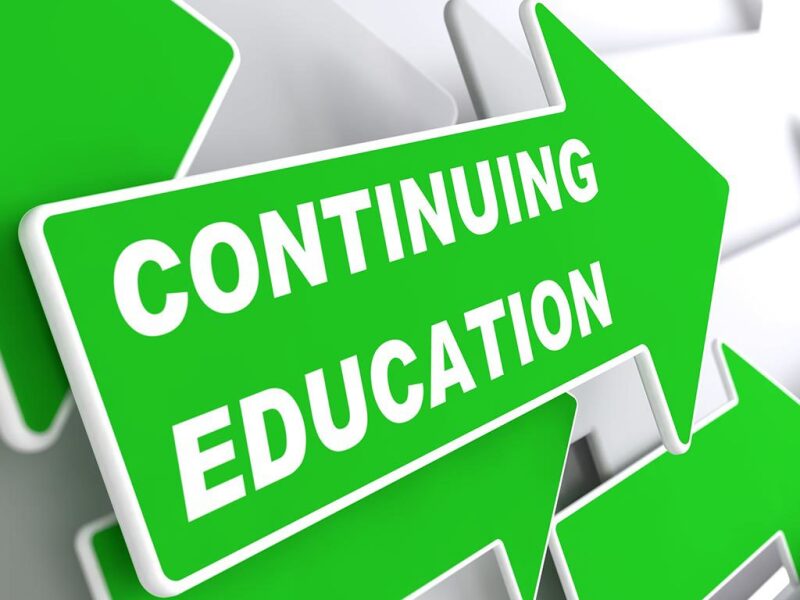Most oil and gas companies recovering from global economic recession are restructuring and adjusting their operating costs to become more efficient and competitive. Often, these efficiency measures translate into reductions in workforce training and education. This is a challenge for employees seeking to build on their professional knowledge and take on new and higher responsibilities. The petroleum industry is very dynamic, and so employees must remain current in the latest career practices, strategies, and techniques. Organizations must seek ways to meet company needs for well-educated, better-trained employees with even fewer financial resources available. To underscore the importance of this, and how continuing education can meet these needs, the HR Discussion Team recently interviewed Professor of Petroleum Engineering and Vice Chancellor, University of Port Harcourt, Nigeria, Joseph A. Ajienka.
What influenced your choice of the oil and gas industry as a career field? Who has helped you the most in your career, and what lessons have you learned from your mentors?
On hindsight, I will say, it was guidance. First, as a child in Okrika, a town in the Rivers state of Nigeria, we heard about Shell and saw Shell workers working for the then Shell-BP refinery at Alesa Eleme. We saw the refinery pipelines and the Okrika jetty, and I was excited and became interested in the oil industry.
Second, I was a science student. I attended Government Comprehensive Secondary School, Port Harcourt, Nigeria, where we were taught well. We had well-equipped laboratories, good teachers, and an environment conducive to learning. In addition to science subjects, I studied technical drawing, woodwork, and metalwork. As I was good in mathematics, physics, and chemistry, I made up my mind to study engineering. Chemistry was one of my best subjects, so I settled for either chemical or petroleum engineering.
In 1975, I appeared for university admission tests. I chose chemical engineering at the University of Lagos and at University of Ife (now Obafemi Awolowo University), while I chose petroleum engineering at the University of Ibadan. Ibadan had no chemical engineering and was the only petroleum engineering school at that time. When the results were released, Ife published theirs in the newspaper, while Ibadan sent out a letter of admission. When I received the letter, I opted to join Ibadan, and since then I have enjoyed the discipline of petroleum engineering.
I had very good teachers and challenging times at Ibadan. I went in for the 1-year prelim (pre-degree) program. It was quite competitive and challenging, but I was successful and was finally admitted into the prestigious petroleum engineering school. I had very good teachers, such as G. K. Falade and Emmanuel Egbogah, a very inspiring teacher. Falade supervised my bachelor’s thesis. I also met very good industry teachers from Mobil, Cameron, and Gulf Oil Company (now Chevron) at Escravos, Nigeria, during my industrial training. Some of the people who guided me were Francis Udom, a production technologist at Gulf, Tony Akpan of Mobil, and Comas Eshiett of Cameron.
I was employed at the University of Port Harcourt and was fortunate to interact with some very good teachers. Chi U. Ikoku was the most inspiring professor, and he was also my mentor. He supervised my master’s and doctorate theses. I learnt a lot from him about how to conduct innovative research and about presentation skills. He was like my academic father. Under his guidance, I wrote and published high-quality technical papers.
You started as a young lecturer in the “ivory tower,” held many positions, and moved to the height of academic ranks. What motivated you during these periods and what were the challenges?
I love teaching and was guided to it. I love research, creativity, and innovation. I am quite convinced that I am gifted in creativity and innovation. I always wanted to work toward improving processes, techniques, and technologies, to improve the productivity and profitability of production operations. My research is focused on “What is new?” In fact, this was the slogan I took away from Chi Ikoku: what is new? We should not reinvent the wheel but work toward improving it.
I was motivated by the desire to make a difference in applied research. I had the good fortune of working with Shell Petroleum Development Company, Port Harcourt, as a production technologist (1993–95) and enjoyed finding innovative solutions to oilfield problems. I also participated in field-development studies and environmentally efficient operations. I also had a stint at the Department of Fuel and Energy, University of Leeds, UK, which broadened my horizon.
The challenges to academic growth in Nigeria were poor remuneration, poor laboratory facilities, and lack of sponsorship for research and for attending international conferences. These factors militated against the growth of academics in Nigeria and were our major source of concern. Despite these, we had increasing student intake, which affected the quality of teaching, laboratory work, and project supervision. Since the establishment of the Institute of Petroleum Studies (IPS), with the kind sponsorship of the joint venture between Nigerian National Petroleum and Total E&P Nigeria, I now have the opportunity to interact with the best students in Nigeria. It is exciting and rejuvenating, and once again, I have started enjoying innovative research.
Do you believe in providing incentives for individuals to acquire continuing-education units through staff training or independent study? What policies can be established to encourage continuing education, especially among young professionals (YPs) in Africa?
I will suggest the following:
A. Employers must evaluate the skills and competencies of their staff and develop staff competency maps. Organizations should progressively arrange continuing-education programs to bridge competency gaps, parts of which should include professional certifications for certain skills like safety. National and international professional-certification programs should be encouraged.
B. Professional mentorship—YPs should be linked to mentors who can guide them in their career growth.
C. Organizations should provide support to employees, particularly YPs interested in higher degrees, by collaborating with universities, institutes, or other appropriate organizations. Coursework should be relevant to fields of specialization and beneficial to the employee’s company.
D. People returning from such courses should be encouraged to make technical presentations within their organizations to share knowledge and encourage colleagues.
Good succession planning is critical for companies facing the “big crew change,” as they equip YPs for advancement in evolving organizations. What measurable targets and realistic strategies do you recommend for managing a company’s knowledge base and inventory of skills to meet the emerging organizational challenges?
Let me explain this with IPS in Nigeria as an example. It is made up of centers of excellence in the upstream, midstream, and downstream sectors of the industry. Each center is focused on graduate training, continuing education, applied research, capacity building, and institute/industry community service. The institute is also based on a tripod of internationalization of higher education at home through collaboration with world-class institutions abroad, partnership with industry, and partnership with national and international professional bodies. With this, industry is actively involved in the program life cycle from curriculum development to course delivery, to field development, and to industrial projects. Professional societies are involved in quality assurance/quality control and professional certification. With lecturers drawn from universities in Nigeria and abroad, as well as experts from industry, we have a blended training program. IPS can help build the solution to the big-crew-change challenge in the Nigerian petroleum industry and Gulf of Guinea at large. I have always advocated that industry should see the institute as a joint-industry project, and the Nigerian Content Development Act Implementation Committees should see IPS and relevant higher institutions as local-content vehicles for creating the human capital needed for the industry’s sustainable development. These are realistic strategies for meeting this challenge. For measurable targets, we need to have proper manpower planning focused on various categories of expertise and projection into the future, as well as plans to develop or adopt best available practices and technologies—so that we can begin to build the strategies needed to meet these targets. If we take all of these together to ensure succession planning, YPs will recognize, embrace, and meet the challenges ahead.
Finally, given the leadership role that you have attained, what lessons can you share with YPs about leadership?
To lead is to serve with humility and dedication to duty. It is also about fostering team spirit, which is vital in a multidisciplinary, multicultural, and multilinguistic industry such as oil and gas. SPE offers opportunities for developing our skills and competencies and sharing ideas on best practices, best available technology, and best available resources for sustainable development. As a matter of fact, I will encourage YPs to take interest in making themselves experts in their disciplines by learning from their mentors and constantly reading SPE journals and publications. The way to the top of one’s career is paved by hard work, consistency, and determination. I would like to encourage our YPs to develop their expertise and strive to be better than their mentors.

Ajienka was named IPS Fellow in 2004 and received the SPE Africa Region Award for Production and Operations in 2008, recognizing his professional contributions and service to SPE and the oil and gas industry. He also received the National Registry of Environmental Professionals (USA) Global Award for Professionalism in Higher Education in 2009. Ajienka is a member of the Nigerian Society of Engineers and a registered engineer. He earned a bachelor’s degree in petroleum engineering from the University of Ibadan, Nigeria, and master’s and PhD degrees in petroleum engineering from the University of Port Harcourt.

